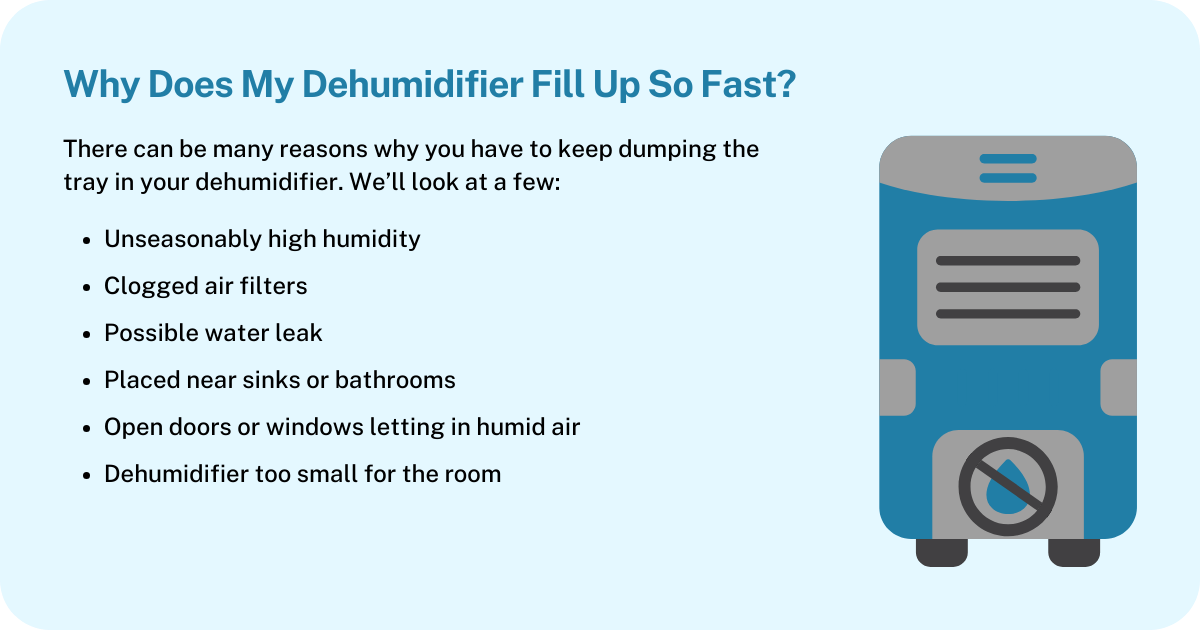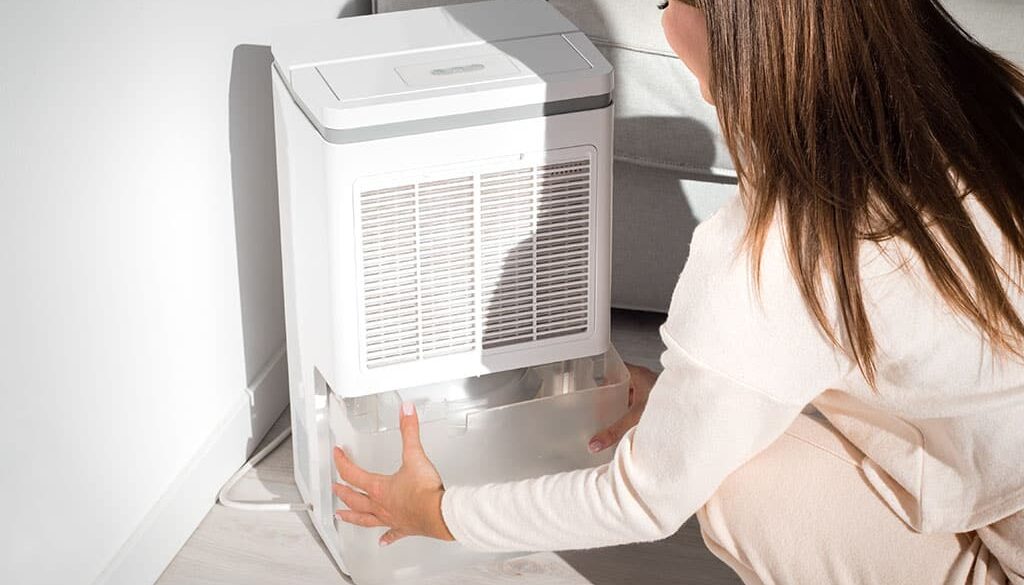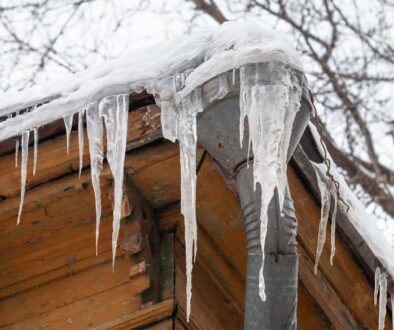If you’re constantly battling against excess moisture in your home or basement, you’re probably concerned about how often dehumidifiers need to be emptied? The answer can affect your home, your air quality, and your health.
We’ve outlined these tips that will go a long way toward helping you live in a healthier environment. We’ll also answer some of your most frequently asked questions about dehumidifiers, including how often dehumidifiers need to be emptied.
How Often Do Dehumidifiers Need to Be Emptied? Let’s Review the Basics First
To fully grasp how often dehumidifiers need to be emptied, we’ll first look at the purpose of a dehumidifier, and how it improves air quality.
Dehumidifiers work by pulling excess moisture from the air. This moisture collects, usually in a removable bucket. This process is called condensation and evaporation. As the dehumidifier’s fan pulls in moist air, it passes over cooling coils, which causes condensation.
The condensed water is then collected in the bucket, tray, or pan—which of course, will eventually need to be emptied.
So, How Often Do Dehumidifiers Need to Be Emptied?
While it’s obvious that the dehumidifier should be emptied when it is full, there are a lot of details that keep the process from being that simple. How often you should empty the humidifier’s water collection depends upon:
-
- How much water your dehumidifier can hold. Smaller ones will need to be emptied more often.
- The size of the room or basement you’re dehumidifying.
- The current humidity levels in your environment—and the percentage of humidity you’re targeting. If you live in a humid area like the Triangle or Burlington area, you may find that your dehumidifier needs to be emptied more often.
- Dehumidifier settings like fan speed and how much moisture you want to be extracted from the environment.
- Climate can also play a factor. How often do dehumidifiers need to be emptied? It often depends upon the season. Hot, humid summers (that are typical of Central North Carolina), will require more diligence than cooler weather.
- How well you maintain your dehumidifier can affect its productivity, which can vary how often it needs to be emptied. We recommend regularly inspecting your dehumidifier to be sure it’s operating at optimum capacity.
You can find more information on how space and moisture levels relate to dehumidifier size—along with some other basics.
Some Frequently Asked Questions About Dehumidifiers
Should My Dehumidifier Need Emptying Every Day?

Do Crawl Space Dehumidifiers Need to be Emptied?
Absolutely—in fact, it’s vital that these dehumidifiers be maintained properly because they help keep the humidity level under control—reducing the chances that you’ll have mold or problems with air quality. Because crawl spaces are close to the ground, they are more prone to excess moisture and the humidifier will need to be emptied regularly.
How Long Should a Crawl Space Dehumidifier Last?
It’s hard to pin down an exact number because it depends upon the brand, the type, and how much it is used. In general, however, you’re looking at anywhere from 5 to 15 years. Many come with a 5-year warranty.
Of course, how long it lasts also depends upon how much demand is placed on it, as well as whether or not it is regularly maintained.
How Often Do You Need to Change the Filter in a Crawl Space Dehumidifier?
This depends upon the manufacturer’s instructions, and we encourage you to follow this guidance to the letter to get the most out of your dehumidifier.
However, in general, you should check your filter once or twice a year, and typically a crawl space dehumidifier with a reusable filter can go for two years before having to be changed. Of course, a disposable filter will need to be changed more often, usually around once every three months.
Need to Check for Excess Moisture? Unsure if You Have Mold? First Call Is Always the Right Call
Eliminating moisture—especially in a crawl space – is vital to maintaining a mold-free home. However, if you do discover mold, it’s vital to leave the job to the experts at First Call. If you try to do it yourself, you may inadvertently make the problem worse by spreading mold spores throughout the area.
See why families, businesses, and educational institutions have trusted First Call for decades. If you’re afraid excessive moisture is creeping into your house, don’t hesitate. Contact us and see why First Call is always the right call.




